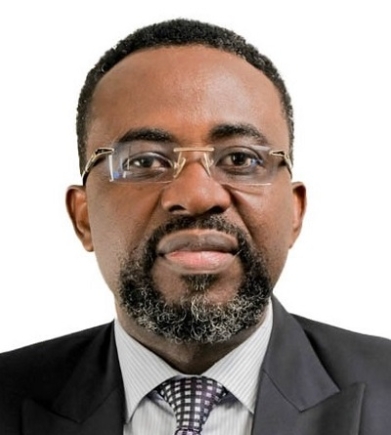
Dr Asiamah assumes office today as new BoG Governor
The new Governor of the Bank of Ghana, Dr Johnson Asiamah, returns to a familiar working space today as he steps into the shoes of Dr Ernest Addison who occupied the post for eight years.
Dr Asiamah starts work as Dr Addison commences his terminal leave today ahead of his official retirement on March 31, 2025, marking the end of his eight-year tenure.
Dr Asiamah, a veteran of the Bank of Ghana with over 23 years of experience at the central bank and a previous stint as Second Deputy Governor between 2016 and 2017, represents continuity and deep institutional knowledge.
With a doctorate in Economics from the University of Southampton and an extensive background in monetary policy formulation and financial stability regulation, he emerges as a carefully selected successor designed to maintain strategic consistency in Ghana's economic governance.
The Daily Graphic believes that his appointment signals a deliberate approach to leadership transition at one of Ghana's most pivotal financial institutions.
Dr Asiamah's credentials highlight a professional deeply rooted in Ghana's financial ecosystem, with a demonstrated commitment to implementing sound monetary and exchange rate policies.
His track record suggests a focus on fostering financial system stability and promoting accelerated economic growth, priorities that have been central to the Bank of Ghana's strategic objectives in recent years.
Dr Asiamah, however, faces a daunting array of challenges that will test his leadership capabilities from day one.
With Ghana's economy still navigating turbulent waters, the former Deputy Governor's return to the central bank places him at the helm of critical monetary policy decisions that could shape the nation's economic trajectory for years to come.
Foremost among his immediate challenges is the urgent need to restore public confidence in the Bank of Ghana following a period marked by significant controversy over the central bank's reported losses and questions about its independence.
The new governor is expected to work to rebuild trust while maintaining the delicate balance between political pressures and the bank's statutory mandate of ensuring price and financial stability.
The stabilisation of Ghana's currency, the cedi, presents another pressing challenge.
Despite showing signs of relative stability in recent months, the currency remains vulnerable to external shocks and market sentiments.
Dr Asiamah's experience in monetary policy operations will be crucial in implementing strategies to maintain the cedi's stability while managing the country's foreign exchange reserves effectively.
Inflation management stands as a critical test for the incoming governor, especially at a time when the central bank missed its inflation target for 2024.
The central bank's policy rate decisions under Dr Asiamah's leadership will be closely watched by market participants and international partners alike.
The new Governor must also navigate Ghana's relationships with international financial institutions, particularly the International Monetary Fund (IMF), as the country continues to implement its economic recovery programme.
Maintaining compliance with programme conditions while ensuring policy flexibility to respond to domestic economic needs will require diplomatic finesse and technical expertise.
The banking sector's health remains another crucial area requiring immediate attention.
Following the financial sector cleanup that reshaped Ghana's banking landscape, Dr Asiamah must ensure continued stability while promoting financial inclusion and innovation.
This includes overseeing the implementation of Basel III (banking regulatory reforms) requirements and strengthening the regulatory framework to prevent future systemic risks.
As Dr Asiamah prepares to take office, his ability to communicate effectively with stakeholders, from market participants to the wider public, will be essential.
Clear articulation of monetary policy decisions and the central bank's strategic direction will also be critical in managing expectations and building support for necessary reforms.
The incoming governor's success in addressing these immediate challenges will not only impact Ghana's economic stability but also set the tone for his entire tenure at the helm of the Bank of Ghana.
With his background as a former Deputy Governor and his extensive experience in central banking, Dr Asiamah brings valuable insights to these challenges.
However, the complexity of Ghana's current economic situation demands not just experience but also innovative thinking and strong leadership to steer the central bank through critical times.
